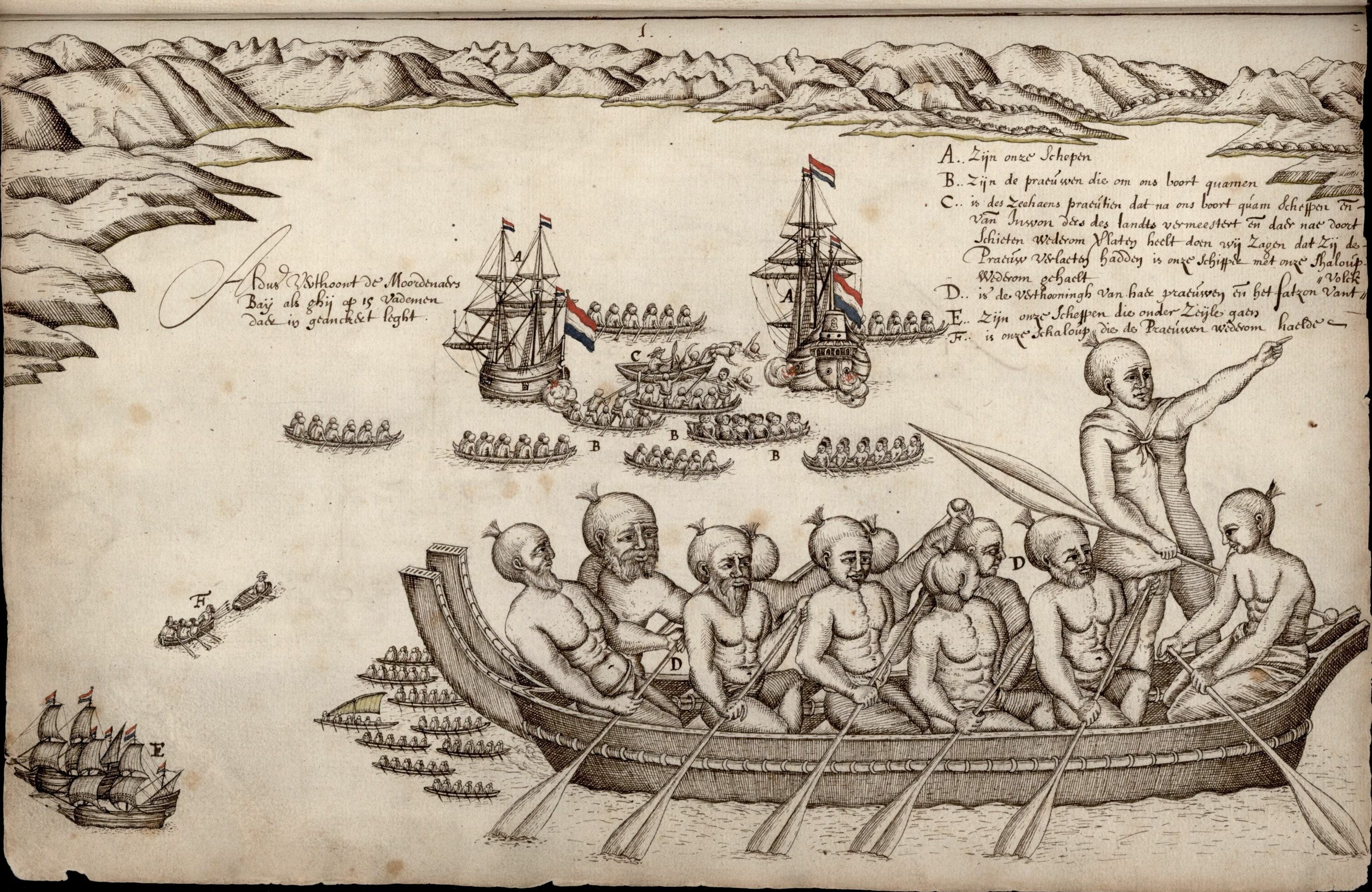|
Tonga-Hiti
Tongahiti is one of Tāwhaki's enemies in a Māori mythology, Māori tradition which White (1887–1891) attributes to the Ngāti Hau iwi. In this tale, Tāwhaki blocks up all the chinks in the house of his enemies, a house of which his grandmother Whaitiri is the doorkeeper. Before sunset, the enemies – who are like small birds – flock into the house in great numbers. Tongahiti is among them. When morning comes, the enemies sleep on, because no light can enter the house. Tongahiti makes a remark about the length of the night, and suggests that Whaitiri may be deceiving them. Tāwhaki now lets the light in, and then kills all the creatures except Tongahiti, who manages to escape through a small hole he pierces through the base of one of the posts at the back of the house. Tongahiti is called 'god of headaches' by White (1887–1891) in his English translation of the story. The reference to headaches does not appear in the Māori text. (Tongahiti is also mentioned by Tregear as ... [...More Info...] [...Related Items...] OR: [Wikipedia] [Google] [Baidu] |
Tāwhaki
In Māori mythology, Tāwhaki is a semi-supernatural being associated with lightning and thunder. Genealogy The genealogy of Tāwhaki varies somewhat in different accounts. In general, Tāwhaki is a grandson of Whaitiri, a cannibalistic goddess who marries the mortal Kaitangata (mythology), Kaitangata (man-eater), thinking that he shares her taste for human flesh. Disappointed at finding that this is not so, she leaves him after their sons Hemā (mythology), Hemā and Punga (mythology), Punga are born and returns to heaven. Hemā is the father of Tāwhaki and Karihi. Tāwhaki grows up to be handsome, the envy of his cousins, who beat him up and leave him for dead. He is nursed back to health by his wife, who feeds the fire that warms him with a whole log of wood. In memory of this incident, their child is named Wahieroa (Long-piece-of-firewood) (Biggs 1966:450). In some versions Tawhaki is the father of Arahuta. She was the cause of a quarrel between her parents, and her mother Ta ... [...More Info...] [...Related Items...] OR: [Wikipedia] [Google] [Baidu] |
Māori Mythology
Māori mythology and Māori traditions are two major categories into which the remote oral history of New Zealand's Māori people, Māori may be divided. Māori myths concern tales of supernatural events relating to the origins of what was the observable world for the pre-European Māori, often involving gods and demigods. Māori tradition concerns more folkloric legends often involving historical or semi-historical forebears. Both categories merge in to explain the overall origin of the Māori and their connections to the world which they lived in. The Māori did not have a writing system before European contact, beginning in 1769, therefore they relied on oral retellings and recitations memorised from generation to generation. The three forms of expression prominent in Māori and Polynesian oral literature are genealogical recital, poetry, and narrative prose. Experts in these subjects were broadly known as . The rituals, beliefs, and general worldview of Māori society were ... [...More Info...] [...Related Items...] OR: [Wikipedia] [Google] [Baidu] |
Whaitiri
Whaitiri is a female atua and personification of thunder in Māori mythology. She is the grandmother of Tāwhaki and Karihi. Whaitiri is the granddaughter of Te Kanapu, son of Te Uira, both of whom are personified forms of lightning (Reed 1963:158). Another more primary atua of thunder, a male, is Tāwhirimātea. Marries Kaitangata Whaitiri is a fearsome figure, fond of cannibalism. When she hears of a mortal named Kaitangata (man-eater), she is certain he will make a fine husband for her. She comes down to earth and marries him, but is disappointed to learn that he is a gentle person, nothing like his name suggests. Whaitiri kills her favourite slave, Anonokia, takes out her heart and liver, and offers them to Kaitangata as a sign of her affection. He is horrified at the grisly offering (Reed 1963:158-159). Kaitangata is a hard worker, spending a lot of time fishing to feed his family. Unfortunately, he has never learned how to make hooks with a barb, and so most of his fi ... [...More Info...] [...Related Items...] OR: [Wikipedia] [Google] [Baidu] |
John White (ethnographer)
John White (3 January 1826 – 13 January 1891) was an English public servant and ethnographer in New Zealand, known for his work on the history and traditions of the Māori people. Life Son of Francis White, he was born in England, and went out to New Zealand with his father in 1832, settling first at Kororāreka. His uncle, William White, was a Wesleyan missionary in nearby Hokianga and may have encouraged their emigration to New Zealand. Kororāreka was sacked by Māori forces at the beginning of the Flagstaff War in 1845, and the White family moved to Auckland Auckland ( ; ) is a large metropolitan city in the North Island of New Zealand. It has an urban population of about It is located in the greater Auckland Region, the area governed by Auckland Council, which includes outlying rural areas and .... White was employed by the government in positions where he came much into contact with the Māori people. Subsequently, he was gold commissioner at Coromandel, and ... [...More Info...] [...Related Items...] OR: [Wikipedia] [Google] [Baidu] |

